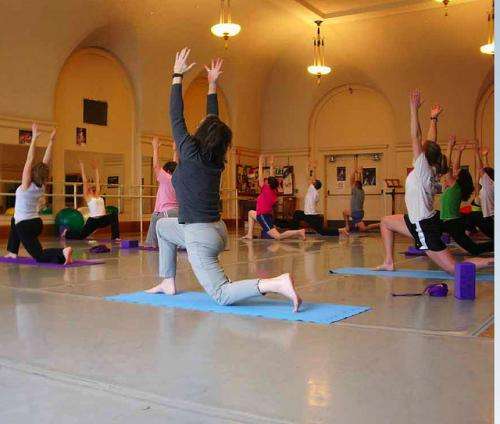Exercise largely absent from US medical school curriculum, study shows

Exercise may play a critical role in maintaining good health, but fewer than half of the physicians trained in the United States in 2013 received formal education or training on the subject, according to new research from Oregon State University.
A review of medical school curriculums showed that a majority of U.S. institutions did not offer any courses on physical activity, and when the courses were offered, they were rarely required, said Brad Cardinal, a professor of exercise and sport science at OSU, and lead author of the study. That could leave doctors ill-prepared to assist patients who could benefit from exercise, he said.
"There are immense medical benefits to exercise; it can help as much as medicine to address some health concerns," said Cardinal, who is a national expert on the benefits of physical activity. "Because exercise has medicinal as well as other benefits, I was surprised that medical schools didn't spend more time on it."
An article on the findings has been accepted for publication in an upcoming issue of the Journal of Physical Activity and Health. Co-authors are Eugene A. Park and MooSong Kim of OSU, and Marita K. Cardinal of Western Oregon University. The study was supported by OSU.
For the study, researchers reviewed U.S. medical schools' websites, looking for all physical activity-related coursework. They reviewed both public and private schools, and schools of medicine and osteopathic medicine. In all, 118 of the 170 accredited schools had curriculum information available online.
Of those, 51 percent offered no physical activity related coursework, and 21 percent offered only one course. And 82 percent of the schools reviewed did not require students to take any physical activity-related courses.
Schools may be spending more time on the topic than appears in the published curriculum, but the absence of physical activity in those documents suggests exercise education is not formalized or institutionalized to the degree it ought to be, given its role in helping people stay healthy, Cardinal said.
"I'm an outsider looking in, and I was expecting to see more than what we did," he said.
Lifestyle-related chronic illnesses such as heart disease and diabetes are among the leading causes of death and disability, and one of the most important ways to prevent such chronic diseases is through regular physical activity participation, he said.
Physicians play a significant and influential role in encouraging and assisting patients who need or are trying to get more exercise, but past research has shown that many physicians lack the education, skills or confidence to educate and counsel patients about their physical activity, Cardinal said.
"Understanding why and how to exercise, and knowing how to help people who are struggling to make it a habit, is really important," he said.
This issue is gaining more attention nationally.The American College of Sports Medicine supports an "Exercise is Medicine" initiative, designed to encourage primary care physicians and other health care providers to include physical activity in the treatment plans of their patients.
Exercise is also a key component of the U.S. government's "Healthy People 2020" initiative to improve health across the nation, and the National Physical Activity Plan to increase physical activity for all Americans, Cardinal said.
If medical schools do not include physical activity education in their curriculums, physicians or other health care workers may need to find other ways to educate themselves about exercise and its role in keeping people healthy, or perhaps give the nod to other professionals who can, Cardinal said.
"We really need to see something happen to address this," he said. "How do we get it more institutionalized into medical school curriculum? This is a question researchers have been asking for 40 years now. It is about time we figured it out."
More information: Journal of Physical Activity and Health, journals.humankinetics.com/jpa … ity-related-content-

















